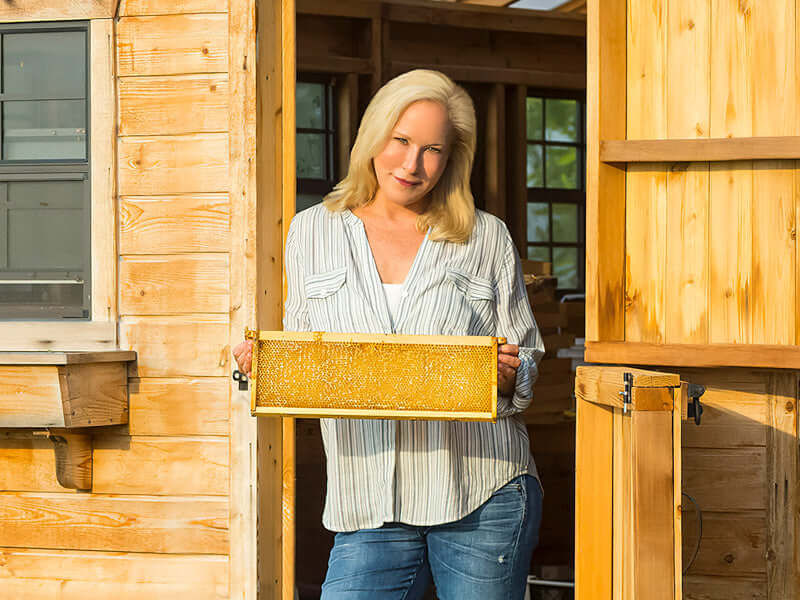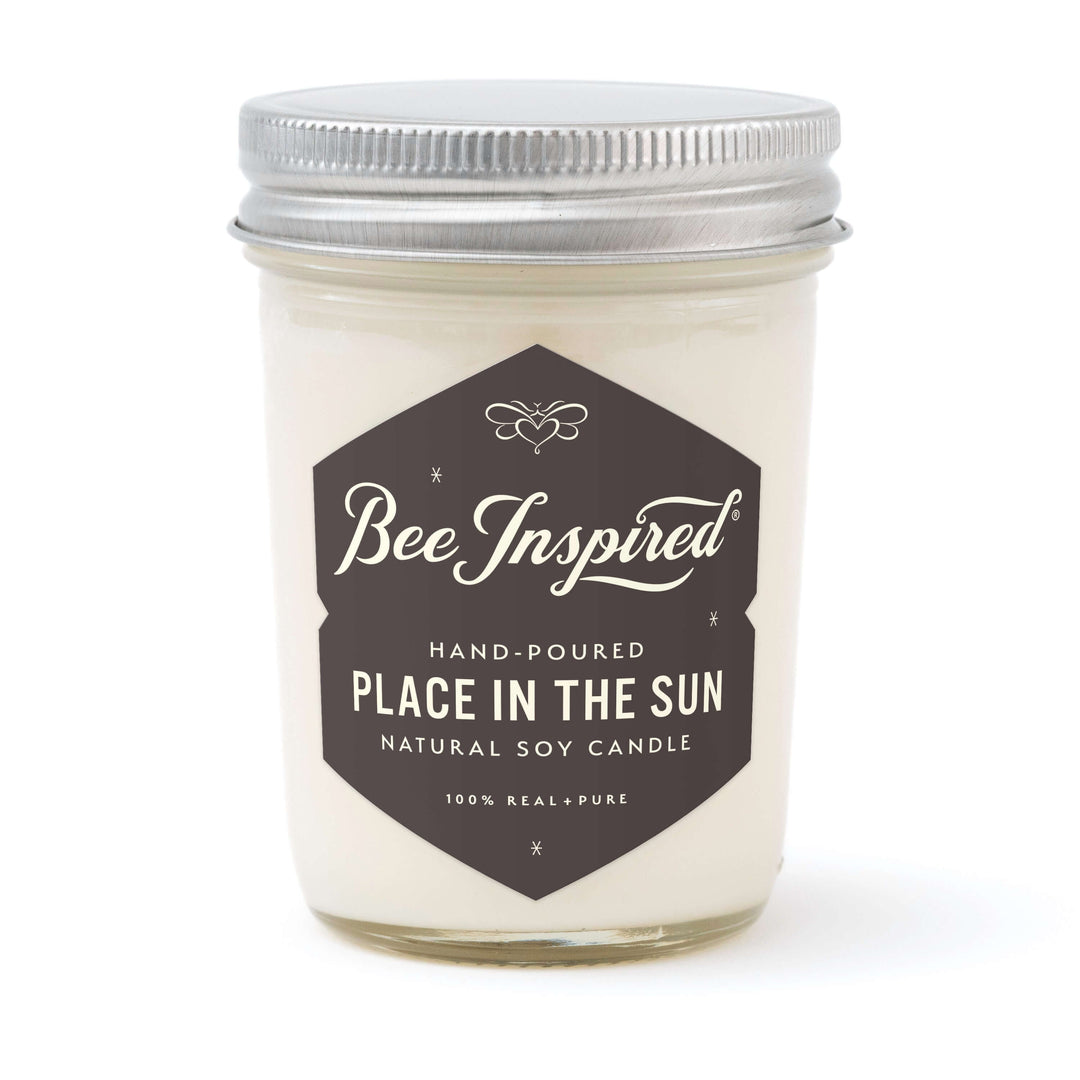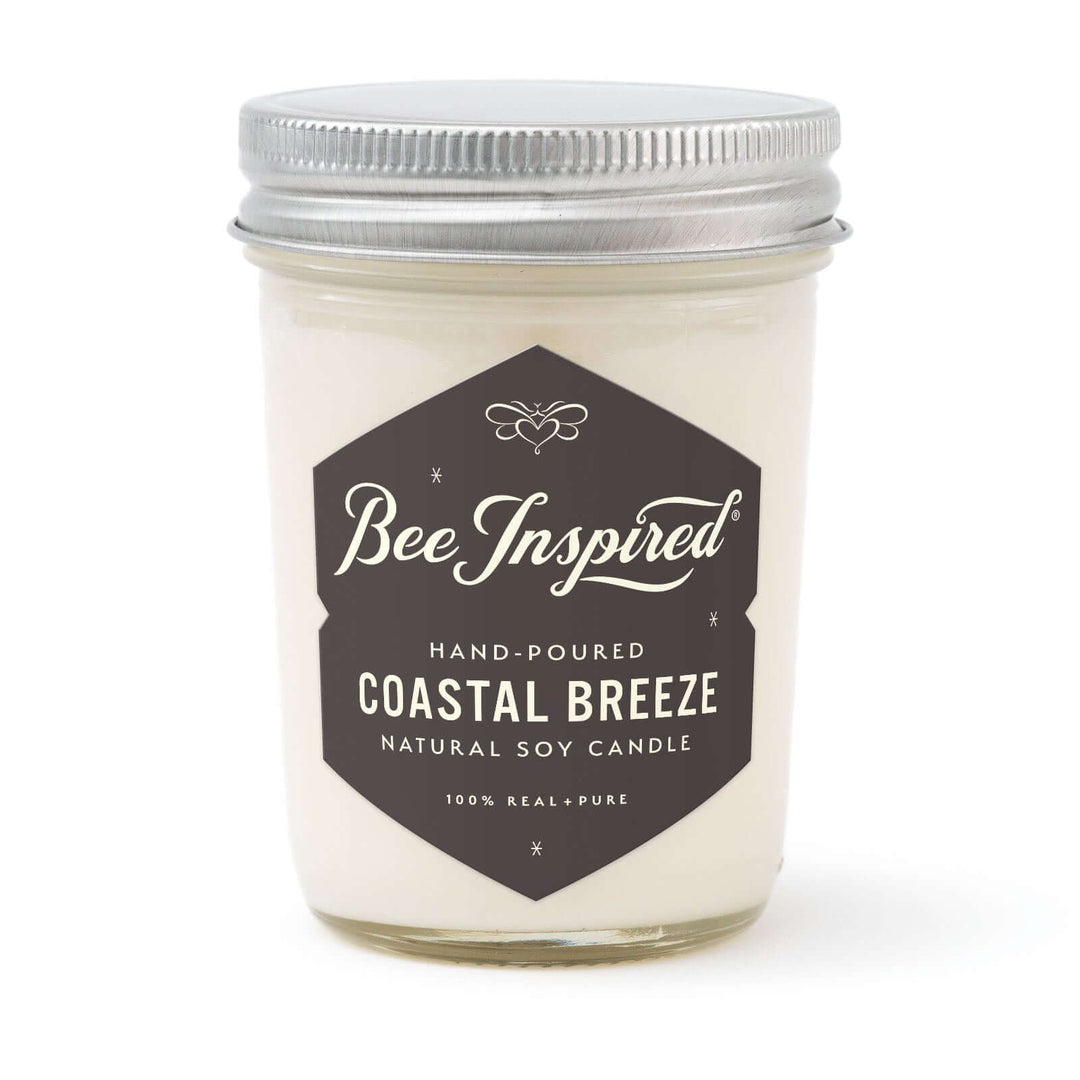Throughout human history, honey has held profound religious significance across diverse cultures and spiritual traditions. From ancient cave paintings to modern ceremonial practices, honey's role in world religions reveals a universal reverence for this golden substance. This exploration of honey's sacred heritage demonstrates how different faiths have incorporated honey into their most meaningful rituals and celebrations.
Honey Sticks are an easy and convenient way for on-the-go energy
Ancient Origins: Honey's Sacred Beginnings
A prehistoric painting from 8000 years ago in the Arana Caves in Spain shows humans harvesting honey from wild bees, providing the earliest evidence of humanity's relationship with honey. This ancient artwork proves honey has been valued for thousands of years, with many civilizations believing the honeybee was a messenger of the gods.

Cave painting from Arana Caves in Spain - photo credit
Historical Documentation Across Ancient Civilizations
- Ancient Egypt: Honey was considered a divine gift from the gods, woven into religious rituals and daily spiritual practices
- Ancient Greece: Beekeeping was a well-regarded profession, with honey featuring prominently in religious ceremonies
- Traditional Cultures: African, Asian, and European societies developed distinct spiritual practices involving honey
Because of its sweetness and non-perishable quality, honey was considered a luxury food. Producing it was considered an art, and many ancient civilizations documented its use in their most sacred texts and traditions.
Honey in World Religions: Sacred Traditions
Ancient Egyptian Spiritual Practices
For cultural explorers and those interested in religious history, the multifaceted uses of honey in ancient Egyptian society offer a fascinating glimpse into how this golden substance shaped spiritual practices. Ancient Egyptians documented honey's sacred significance in religious texts and burial customs.
In 2015, archaeologists reported finding 3,000-year-old honey while excavating tombs in Egypt, and it was perfectly preserved. This durability contributed to honey's spiritual symbolism of eternal life and divine preservation in Egyptian religious practices.
Traditional Egyptian Honey Ceremonies: Historical records show ancient Egyptians used honey in burial rituals, believing it would sustain souls in the afterlife. Beer-bread recipes from 2000 BC demonstrate how honey was integrated into both daily sustenance and ceremonial foods, with recipes that combined grains, water, yeast, and honey.
Persian Wedding Traditions
In Persian religious and cultural traditions, honey plays an essential ceremonial role. During Persian weddings, couples traditionally exchange honey with each other. This ancient practice symbolizes sweetness and prosperity in their new life together, representing hopes for joy and good fortune.

This tradition continues today in modern Iran, demonstrating the enduring cultural significance of honey in Persian religious and social customs.
Middle Eastern Sacred Customs
In various Middle Eastern religious cultures, honey ceremonies mark important spiritual milestones. Traditional texts document honey's use in marriage ceremonies, where it symbolizes the sweetness and divine blessing that religious communities believe should characterize sacred unions.
Honey in Major World Religions
Judaism: Sweet New Year Traditions
In Jewish religious tradition, honey holds profound significance during Rosh Hashanah, the Jewish New Year. During this sacred holiday, it's customary to dip apples in honey while sending wishes for a sweet and happy year ahead. Most Rosh Hashanah gifts include kosher honey for this purpose.

Jewish Religious Honey Traditions:
- Symbolic Meaning: Honey represents hopes for sweetness in the coming year
- Ceremonial Practice: Apples dipped in honey during religious services
- Cultural Significance: Fresh starts and divine blessings in Jewish faith
- Modern Observance: Contemporary Jewish families continue these ancient traditions
Our Kosher honey collection is Star-K certified for religious observance.
Christianity: Sacred Symbolism
Beeswax and Honey in Catholic Traditions
The Catholic Church has maintained a long tradition of using beeswax candles in religious ceremonies. Historical records show that beekeepers supplied these sacred candles, with honey as a natural byproduct of this religious practice.
Christian Honey Symbolism:
- Pure Beeswax Candles: Represent the light of Christ and divine truth in Christian worship
- Religious Significance: Symbolize purity and spiritual enlightenment in Christian tradition
- Historical Practice: Centuries-old traditions connecting beekeeping with sacred worship
Islam: Divine Revelation
The Miracle of Honey in Islamic Tradition
More than 1400 years ago, the Quran referenced honey through divine revelation. Islamic texts describe honey's significance in religious context: "And the Lord inspired the bee, saying: Take your habitations in the mountains and in the trees and in what they erect."
Islamic Honey Traditions:
- Quranic References: Sacred texts mention honey's divine nature
- Religious Significance: Considered a blessing from Allah in Islamic faith
- Cultural Practices: Traditional Islamic communities incorporate honey into religious observances
Hinduism: Food of the Gods
Sacred Honey in Indian Religious Tradition
Indian religious mythology considers honey to be food of the gods and one of the five elixirs of immortality (Panchamrita). In Hindu tradition, Vishnu and Krishna are known as the "nectar-born ones" whose symbol is the bee.
Hindu Honey Traditions:
- Ancient Vedic Texts: The Rigveda and Upanishads document the sacred relationship between bees and humans
- Religious Symbolism: Honey represents divine nourishment in Hindu worship
- Ayurvedic Context: Traditional Indian texts describe honey's role in spiritual practices
- Sacred Status: Considered one of nature's most remarkable gifts in ancient Vedic civilization
India's oldest sacred writings, The Vedas, contain detailed references to honey's spiritual significance in religious ceremonies.
Buddhism: Spiritual Nourishment
The Buddhist Honey Legend
The Honey Full Moon festival (Madhu Purnima) connects directly to honey through ancient Buddhist religious tradition. In Buddhist legend, the Buddha retreated into the forest where he received honeycomb as a gift from a monkey, representing divine provision during spiritual practice.
Buddhist Honey Traditions:
- Madhu Purnima Festival: Sacred observance celebrated in India and Bangladesh
- Religious Gifts: Honey and fruit traditionally offered to monasteries
- Spiritual Significance: Represents nourishment during spiritual enlightenment
- Cultural Practice: Contemporary Buddhist communities continue these ancient traditions

Chinese Traditional Spirituality
Vitality in Chinese Religious Medicine
During the Ming Dynasty, Chinese scholar and physician Li Shizhen wrote the influential Compendium of Materia Medica, which documented honey's traditional uses in Chinese spiritual and cultural practices. This text remains significant in Traditional Chinese cultural heritage.
Chinese Honey Traditions:
- Historical Documentation: Ancient texts record honey's spiritual significance
- Cultural Practices: Traditional Chinese ceremonies incorporated honey
- Religious Medicine: Spiritual texts documented honey's role in traditional practices
- Cultural Heritage: Contemporary Chinese culture maintains these ancient traditions
Cultural Ceremonies and Sacred Rituals
Sweet Rituals: Honey in Religious Celebrations
Throughout history, honey has been central to religious ceremonies worldwide. From ancient rituals to modern-day observances, honey represents purity, prosperity, and divine blessing across different faith traditions.
Religious Ceremony Types:
- Wedding Blessings: Ancient Greece used honey in marriage ceremonies for spiritual harmony
- Birth Celebrations: African religious cultures incorporated honey in blessing ceremonies
- Seasonal Observances: Various religions mark seasonal changes with honey traditions
- Sacred Offerings: Many faiths historically offered honey to deities as tribute

Honey Party Favors are perfect for weddings
Mead: Sacred Fermentation
Mead is widely believed to be humanity's first fermented beverage, with evidence of honey fermentation in religious contexts dating to 7000 BC in China. Ancient civilizations across Asia, Europe, and Africa developed their own versions for religious ceremonies.
Religious Mead Traditions:
- Ancient Ceremonies: Used in spiritual celebrations across cultures
- Sacred Fermentation: Religious communities viewed mead production as divine craft
- Cultural Significance: Connected spiritual practice with seasonal honey harvests
- Historical Documentation: Archaeological evidence shows religious mead ceremonies
Sacred Economics: Honey as Divine Currency
Liquid Gold in Religious Context
In many ancient religious societies, honey served as both spiritual offering and economic exchange. Religious texts document honey's use as tribute to deities and sacred institutions.
Sacred Economic Practices:
- Temple Offerings: Honey given to religious institutions as sacred tribute
- Divine Currency: Used in religious transactions and ceremonial exchanges
- Spiritual Value: Represented divine blessing in economic contexts
- Religious Trade: Facilitated exchange between sacred and secular communities
Historical Religious Centers: By the time the Roman Empire ended, organized religious beekeeping was established in Egypt, Greece, Italy, and Israel. These centers produced honey and beeswax for religious ceremonies and spiritual practices.

When you buy a jar of Ukrainian Sunflower Honey, we donate to war relief efforts
Regional Religious Honey Traditions
African Spiritual Practices
Traditional African religious systems incorporated honey into various spiritual ceremonies:
- Birth Blessings: Honey ceremonies for healthy children in traditional African faiths
- Seasonal Celebrations: Religious observances tied to honey harvest seasons
- Ancestral Offerings: Traditional spiritual practices using honey as sacred gift
- Cultural Continuity: Modern African communities maintain ancient honey traditions
European Sacred Customs
European religious traditions developed distinct honey ceremonies:
- Medieval Christianity: Monastic communities integrated beekeeping with religious life
- Folk Traditions: Regional religious practices incorporating local honey customs
- Sacred Seasons: Christian calendar events marked with honey ceremonies
- Religious Art: European religious art frequently depicted bees and honey symbolically
Modern Religious Honey Practices
Contemporary Faith Traditions
Modern religious communities continue ancient honey traditions:
Current Religious Observances:
- Jewish Communities: Contemporary Rosh Hashanah celebrations maintain traditional honey customs
- Christian Churches: Modern Catholic parishes continue beeswax candle traditions
- Buddhist Centers: Contemporary monasteries observe traditional honey offering practices
- Interfaith Celebrations: Modern spiritual communities incorporate honey in ecumenical ceremonies
Cultural Preservation
Religious communities worldwide work to preserve traditional honey practices:
- Educational Programs: Teaching younger generations about religious honey traditions
- Cultural Documentation: Recording traditional ceremonies for future generations
- Interfaith Dialogue: Sharing honey traditions across different religious communities
- Sustainable Practices: Combining traditional religious values with modern environmental stewardship
The Sacred Honey Legacy
Spiritual Symbolism Across Faiths
Universal Religious Themes:
- Abundance and Prosperity: Honey symbolizes divine blessing across cultures
- Purity and Sanctification: Religious traditions use honey to represent spiritual cleanliness
- Fertility and Life: Many faiths connect honey with divine creation and renewal
- Wisdom and Enlightenment: Spiritual traditions associate honey with divine knowledge

Our Allergy Support Set contains Wildflower Honey, Blueberry Honey, and Alfalfa Honey
Modern Spiritual Significance
Contemporary religious communities continue to find meaning in traditional honey practices:
Enduring Spiritual Values:
- Community Connection: Honey traditions strengthen religious community bonds
- Cultural Identity: Religious honey practices maintain cultural heritage
- Seasonal Awareness: Sacred honey ceremonies connect communities with natural cycles
- Interfaith Understanding: Shared honey traditions create bridges between different faiths
Whether you're exploring religious traditions or seeking spiritual significance in natural foods, understanding honey's sacred heritage enriches appreciation for this remarkable substance. From ancient cave paintings to contemporary religious ceremonies, honey continues to represent humanity's connection to the divine across cultures worldwide.
Supporting Sacred Traditions
Ethical Honey Sources
When participating in religious honey traditions, consider sources that honor the sacred relationship between humans and bees:
Values-Based Selection:
- Sustainable Beekeeping: Supporting practices that respect bee welfare
- Local Traditions: Connecting with regional beekeeping heritage
- Quality Standards: Choosing pure, unprocessed honey for religious observances
- Cultural Respect: Understanding the spiritual significance of honey sources
Religious Certification: Our kosher honey products are Star-K certified for religious observance, ensuring compliance with traditional dietary laws.

Explore our collection of OU certified kosher honey lollipops
Continuing Sacred Heritage
Ways to Honor Honey's Religious Legacy:
- Learn Traditions: Study how different cultures incorporate honey into spiritual practice
- Participate Respectfully: Engage with religious honey customs appropriate to your faith tradition
- Support Communities: Choose honey sources that support traditional beekeeping communities
- Share Knowledge: Teach others about honey's sacred significance across cultures
Honey's Eternal Sacred Significance
From ancient Mesopotamian temples to modern religious services, honey has maintained its sacred status across virtually every major world religion. This universal reverence speaks to something deeper than cultural coincidence—it reflects humanity's recognition of honey as a divine gift.
Key Religious Themes:
- Universal Symbolism: Honey represents divine blessing across all major faith traditions
- Cultural Continuity: Religious honey practices span thousands of years of human history
- Sacred Economics: Honey served both spiritual and practical roles in religious communities
- Modern Relevance: Contemporary faith communities continue ancient honey traditions
The Sacred Circle: Understanding honey's role in world religions reveals the sacred relationship between humans, bees, and the divine. Whether marking Jewish New Year with honey-dipped apples, lighting beeswax candles in Christian worship, or participating in Buddhist honey offerings, these traditions connect us to thousands of years of spiritual heritage.
For more insights into honey's broader cultural significance, explore our comprehensive guide to traditional honey applications throughout history.
Discover how sacred honey traditions continue today with our ethically-sourced honey collection. From kosher-certified varieties for religious observance to locally-harvested honeys that connect you with traditional beekeeping heritage, find the perfect honey to honor these timeless spiritual practices.












